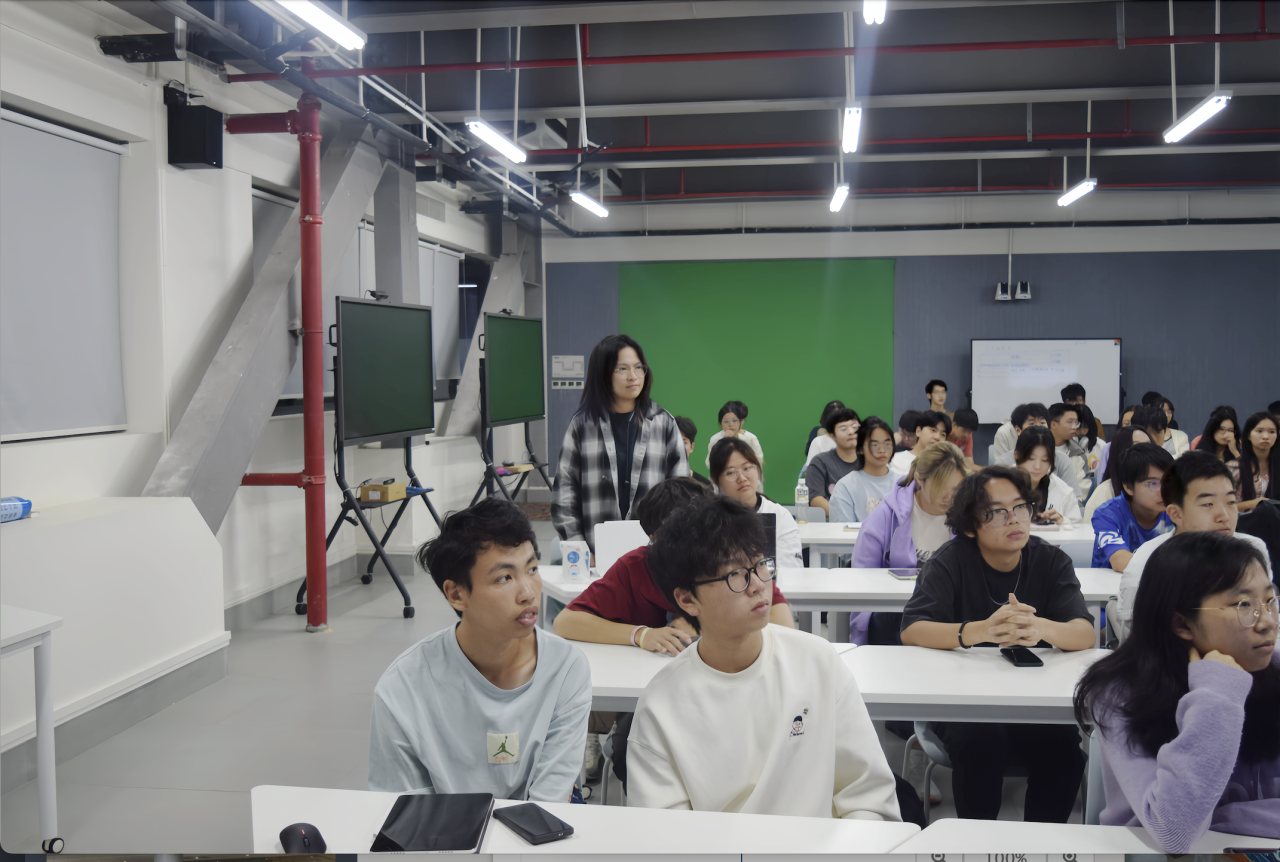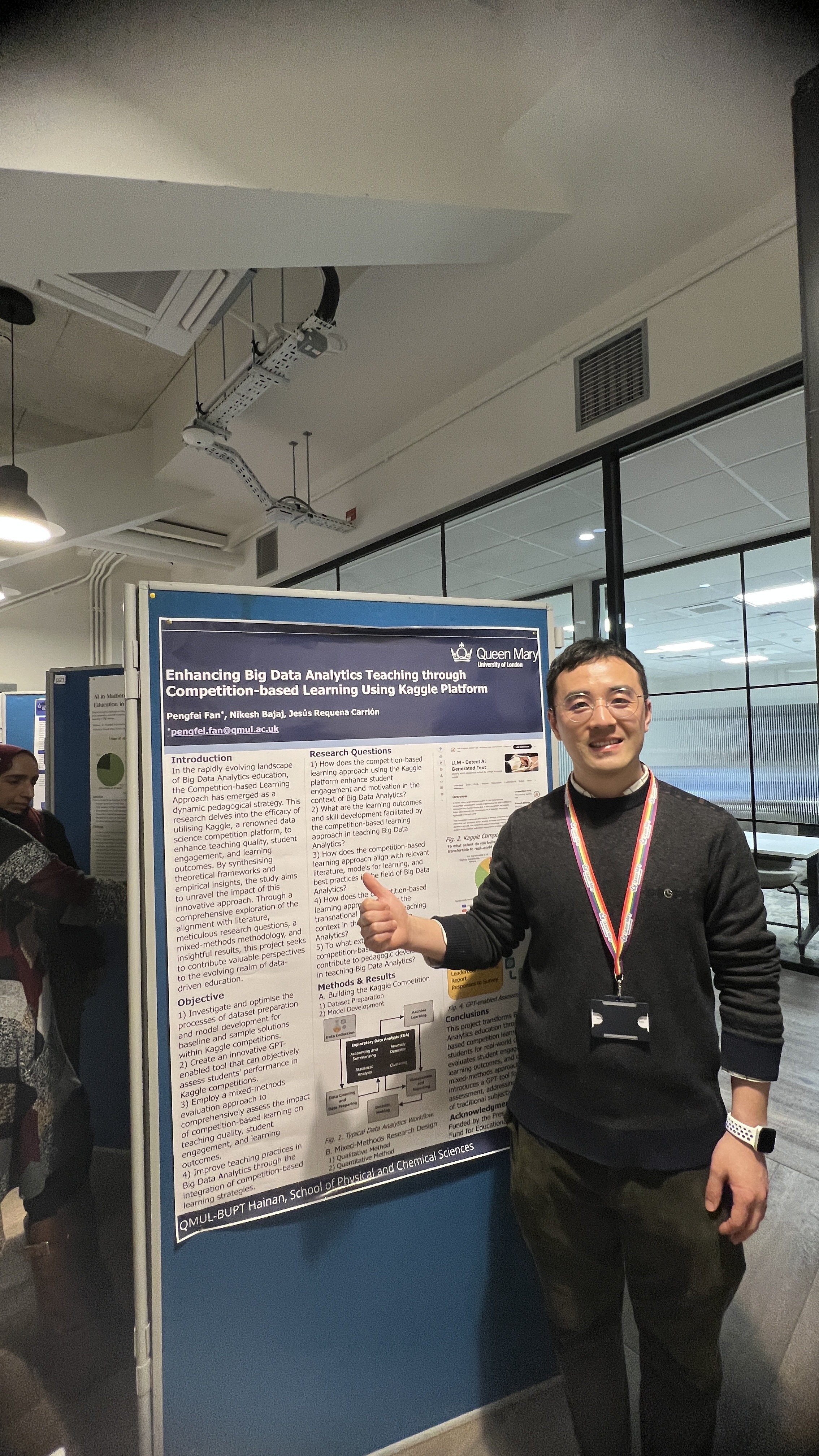Enhancing Data Science Education through Competition-Based Learning and AI-Driven Assessment
We are pleased to share the successful completion of the project Enhancing Data Science Education through Competition-Based Learning and AI-Driven Assessment, led by Dr Pengfei Fan and funded by the President and Principal’s Fund for Educational Excellence (PPFEE) 2024/25.
The project piloted the integration of competition-based learning into the Data Science and AI curriculum at Queen Mary. Students engaged in authentic, real-world Exploratory Data Analysis challenges, fostering both collaboration and competition as part of their learning.

In addition to competition-based learning, the project introduced a novel AI-Driven Distributed Scaffolding framework. By designing structured prompts and interaction flows, students received personalised, AI-supported guidance throughout their competition journey. This approach helped learners refine their strategies, reflect on their problem-solving process, and access adaptive feedback beyond conventional assessment.
The project’s impact has already reached multiple platforms:
- Showcased at the Festival of Education 2025 (QMUL)
- Presented at IEEE EDUCON 2025 under the title Enhancing Competition-Based Big Data Analytics Learning Through AI-Driven Distributed Scaffolding
- Presented at ICSCC 2024 under the title Unlocking the Potential of Competition-Based Learning: A Case Study of Kaggle in Big Data Analytics Education
- Featured in the Queen Mary Academy Annual Impact Report 2024–25 (p.14) Link
- Shared at internal events, such as the JPRC Launch Event

Reflecting on the project, Dr Fan noted in the Queen Mary Academy Annual Impact Report 2024–25:
“The funding enabled us to pilot an innovative, competition-based learning model in the Data Science curriculum – a thoughtfully designed approach that responds to the changing nature of assessment in the age of AI. It allowed us to co-create authentic learning experiences with students that blend human elements such as collaboration and competition to balance the increasing influence of automation.”
Looking ahead, Dr Fan and the team will expand this work into the broader development of AI-enhanced educational platforms, aiming to prepare students for the AI era with adaptive learning, personalised feedback, and ethical human–AI collaboration.